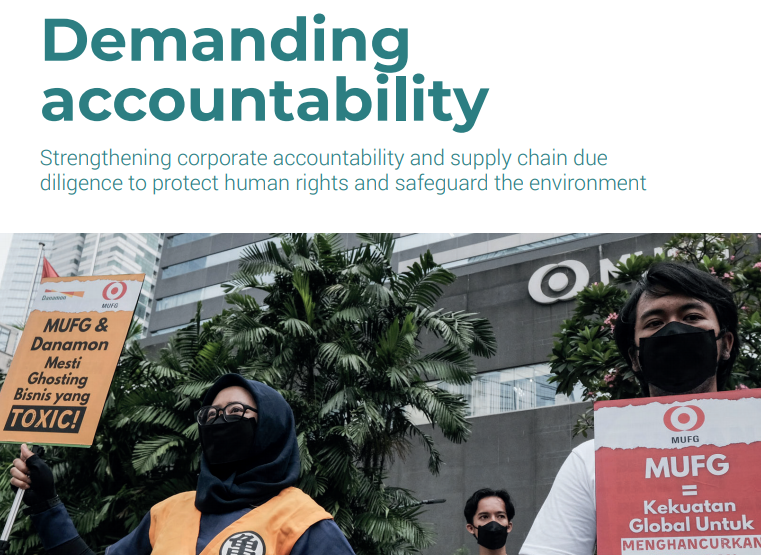Household names including Nestlé, PepsiCo, Wilmar and Unilever and associated global financial institutions and investors continue to ‘turn a blind eye’ to human rights abuses in their palm oil supply chains, finds a new report compiled by TuK INDONESIA, PUSAKA, Walhi, and Forest Peoples Programme.
The report highlights systemic social and environmental problems that continue to plague the Indonesian palm oil industry and connected global palm oil supply chains. Rights abuses embedded in palm oil were frequently found to be tied to land conflicts, deforestation, weak land governance, and other environmental harms.
“The palm oil sector is associated with grave historical injustices, ongoing abuse of indigenous and community rights and denial of remedy,” said Norman Jiwan.
The report traces connections to downstream companies and financiers that either invest in the industry or trade, process, manufacture or sell consumer goods made from their palm oil.
Although companies and global food and drink brands continue to market their ‘green credentials’ and claim to support due diligence and ‘environmental and social governance’ (ESG), not enough attention is being given to identifying and addressing human rights impacts in business operations and investments.
“New laws on corporate conduct in both importer and producer countries must hold these actors to high due diligence standards. Binding regulations are needed to oblige these actors to ensure that their supply chains and portfolios are not stained by violence, land loss, harm to local livelihoods and lack of remedy More solid actions by downstream companies and investors to protect human rights are long overdue.” Jiwan added.


